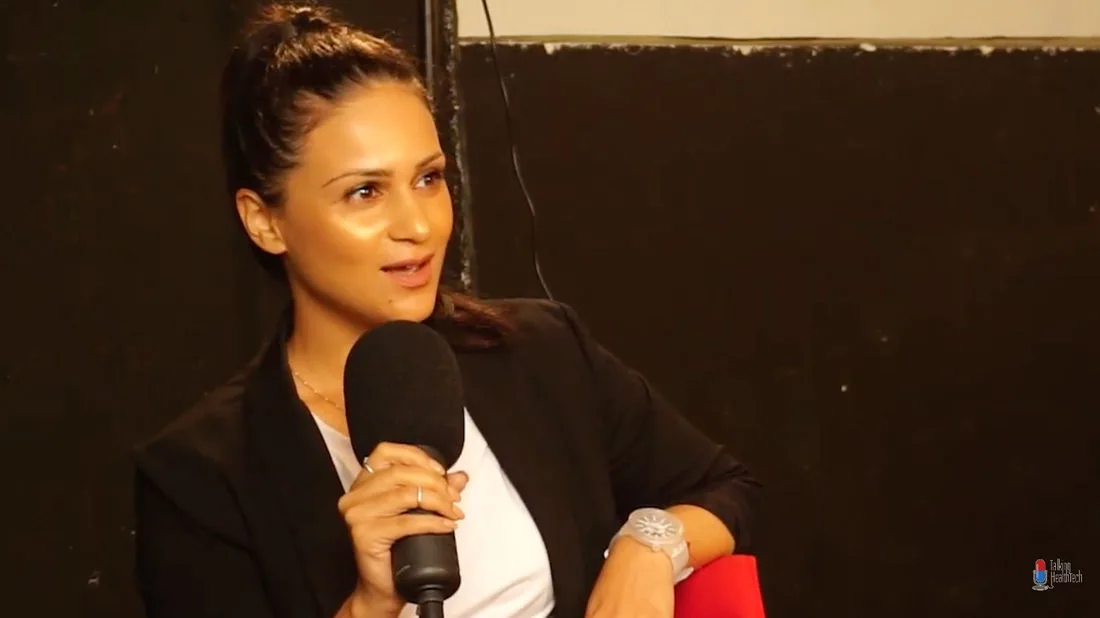Talking HealthTech: 336 – Mental health and conversational AI. Esha Oberoi, Leora.ai

Source: talkinghealthtech.com

Provided by:
Talking HealthTech
Published on:
14 March 2023
In recent years, conversational AI tools have made a huge impact on various industries, including healthcare. With the ability to perform tasks previously done by humans, artificial intelligence and machine learning have opened up new possibilities for improving patient care. One significant area of focus is mental health, where the burden has become increasingly challenging to manage. In this episode, let us explore how virtual self-care coach Leora is leveraging conversational AI to provide accessible, personalised mental health support.
Journey Towards Artificial Intelligence
Esha Oberoi, CEO and founder of Leora, discussed her journey into the world of artificial intelligence and mental health. She reflected on her previous appearance on the podcast, where she talked about scaling Afea Care Services during the challenges of COVID and winning a women in digital tech award. However, despite these accomplishments, Esha was struggling to get mental health and psychosocial clients in front of psychologists and psychiatrists. This is what prompted her to immerse herself in the world of artificial intelligence.
Leora The Chatbot
Leora is a revolutionary product in the world of mental health, offering individuals access to self-management mental health tools while they wait to see a psychologist or a psychiatrist. The platform is an intelligent chatbot that helps people with anxiety or depression self-manage their condition in between therapeutic sessions. The technology development took six months, and the chatbot has been designed to effectively serve individuals struggling with mental health issues. The chatbot is an innovative solution that can help bridge the gap between therapy sessions and enable people to manage their mental health conditions independently.
Chatbot Technology
The field of conversational AI is set to experience exponential growth in the next decade. Large tech companies have already invested heavily in this area in the last five years, and this trend is set to continue. One area where conversational AI is making an impact is in mental health. For years, people have had access to digital mental health programs, but they often lack engagement and fail to motivate individuals to complete the program. This is where chatbot technology comes in. By using an avatar to provide a conversational interface, chatbots can provide a more engaging experience for users, leading to increased stickiness and completion rates. Leora, an AI chatbot designed to help individuals manage anxiety and depression, is one example of this technology in action. Initially, Leora was designed as a digital human, but the team soon realised that a chatbot would be more effective in creating engagement and helping individuals to complete their mental health program. The rise of conversational AI is set to revolutionise the way to interact with technology and provide exciting opportunities for businesses and industries.
A Suitable Avatar
User testing is a crucial part of creating successful products, especially when it comes to avatars and digital representations. This was demonstrated by a recent study conducted in India and Australia, which revealed the importance of localization in avatar design. Australian users felt repulsed by a human-like digital avatar, while Indian users found it appealing. The Indian market also preferred digital avatars to animal or animated ones. This highlights the importance of considering cultural preferences and user feedback when designing avatars. The study led to the creation of Leora, a digital avatar that was designed with user feedback in mind. Her features were adjusted to increase trust and rapport with users, proving that user testing can lead to successful product development.
Healthcare Design
Designing healthcare solutions that cater to patients’ needs requires understanding their preferences and expectations. This is especially true for conversational AI agents, where trust is built through visual representation. Combining Western science with Eastern philosophy, such as meditation, can provide a unique experience for individuals dealing with mental health issues. Leora, a conversational AI mental health app, takes a holistic approach to mental health by blending Western psychology with Eastern philosophy. The app is built on acceptance and commitment therapy techniques and is clinically effective. Leora aims to provide a complementary digital tool to traditional human-led therapy and will release its first peer-reviewed paper with the University of Sydney in the next seven to ten days.
Target Population
The health app is being developed to cater to individuals’ mental health needs while also being mindful of potential technology risks. At this stage, the app is geared towards younger generations, particularly those aged 25-35, who tend to have a stronger affinity to technology. However, the team is mindful of the potential risks associated with technology dependency and aims to build clinical efficacy and evidence into the product before expanding to a wider demographic. As the platform continues to develop, it aims to provide a complementary digital tool to traditional human-led therapy, accelerating and improving the services while minimising the risks of technology dependency.
The Potential of AI
Chat GPT has sparked a conversation around its relevance to businesses. AI can replicate the human brain, and the more connections it creates, the more intelligent it becomes. Many industries, including healthcare, are looking to adopt AI to improve their services. But it’s essential to manage the risks associated with the use of AI. Approaching AI with a zero trust mindset, ensuring by building the necessary infrastructure and scaffolding to mitigate any risks. While AI has the potential to revolutionise industries, it must be approached with caution.
Collaboration
As Leora is aiming to use AI to improve the mental healthcare experience for consumers, Esha shared its need for collaboration, partnership, and funding to scale its technology and make a global impact. In achieving its goals, the company is open to any ideas or individuals who are interested in partnering and collaborating.

